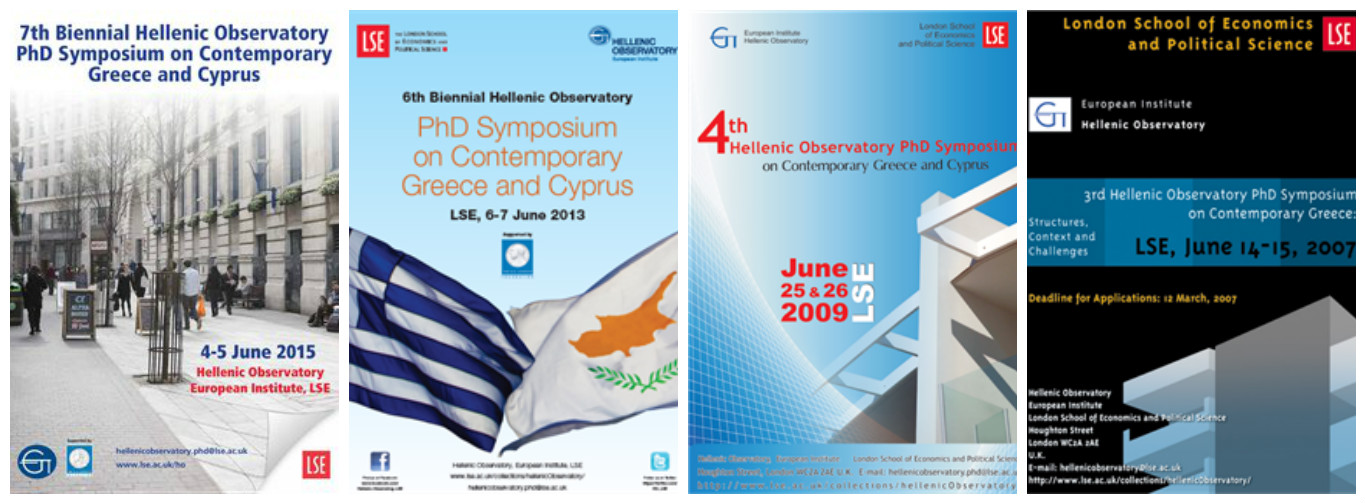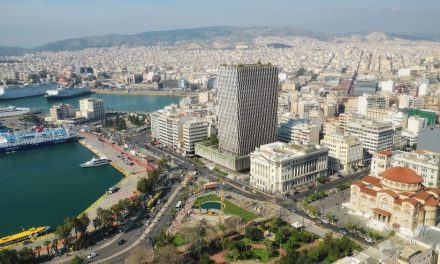On Saturday 1st July 2017, the LSE Hellenic Observatory hosted the 8th Biennial PhD Symposium on Contemporary Greece and Cyprus. The core aim of the Symposium was to provide a platform for exchange of knowledge and ideas between young scholars currently undertaking research on Greece and Cyprus.
Since 2003 the Hellenic Observatory has been organizing the biennial PhD Symposia for post-graduate students in the social sciences working on Greece. The key objective of these Symposia is to facilitate the exchange of knowledge and ideas between young researchers and to provide them with the experience of presenting their research to an international audience.
The 8th Biennial PhD Symposium has attracted PhD students from many different countries which presented their work in front of experienced scholars and academics. Participants were invited to present a part of their thesis at panels covering a wide range of disciplines and interests. They received feedback from peers and Hellenic Observatory academics whilst being exposed to new concepts, methods and content brought by the other participants. The 8th Biennial Symposium programme was organised into panel discussions each with a narrow disciplinary focus (Political Science I: Parties, Ideologies and Trends; Labour Market Economics; Cultural Identity; Education; Applied Economics; History; Local and Urban Development; International Relations; Social Anthropology; Political Science II: Reforms, Adjustment Programmes and EU Governance), and two plenary sessions that addressed broader themes relating to Greece or Cyprus, or indeed questions of methodology and planning in the delivery of a PhD thesis.
Interesting paper presentations during the panel discussions included “The impact of far-right political parties on immigration policy implementation: The case of Golden Dawn” (Stefanos Pentaras), “To invest or not to invest in higher education: the question for crisis-shaken Greece” (Irene Aravani), “Greece: the self in transition, or maybe not?” (Efsevia Koutantou), “Political instability and economic growth in Greece” (Antonios Sarantidis), “Commoning as a mode of social organisation in contemporary Greece” (Panagiota Bampatzimopoulou), “The south-east energy corridor connecting Greece and Cyprus: how feasible, how viable?” (Antonios Stratakis), “(Post)-memories of the Greek Civil War and its aftermath in modern Greek fiction” (Vicky Kaisidou), and “European normality: Analysing the normative discourse during the Greek crisis” (Antonis Galanopoulos).
In the first plenary session Eleftherios Venizelos Professor of Contemporary Greek Studies and Professor of European Politics Kevin Featherstone explained all stages of the PhD process and offered a detailed guide for students researching Greece and Cyprus. Having the experience of supervising over 30 PhD candidates, Professor Featherstone advised the students on multiple issues related to their current research and their future publications. The second plenary session was given by Prof Yannis Papadopoulos from the Institute of Political, Historical and International Studies. University of Lausanne. Prof Papadopoulos gave a lecture on “The Eurozone Crisis and Democracy: Implications for Greece”, which highlighted the evolving power balance between ruling institutions and actors and further assessed the impact of the Eurozone crisis upon the democratic credentials of the EU decision-making system.
Established in 1996, the Hellenic Observatory is internationally recognised as one of the premier research centres on contemporary Greece. The HO engages in a range of activities, including developing and supporting academic and policy-related research; organisation of conferences, seminars and workshops; academic exchange through visiting fellowships and internships; as well as teaching at the graduate level through LSE’s European Institute.
Read more: Symposium Booklet; 1st to 7th HO PhD Symposia; Greece@LSE Blog; GreeSE: Hellenic Observatory Papers on Greece and Southeast Europe














